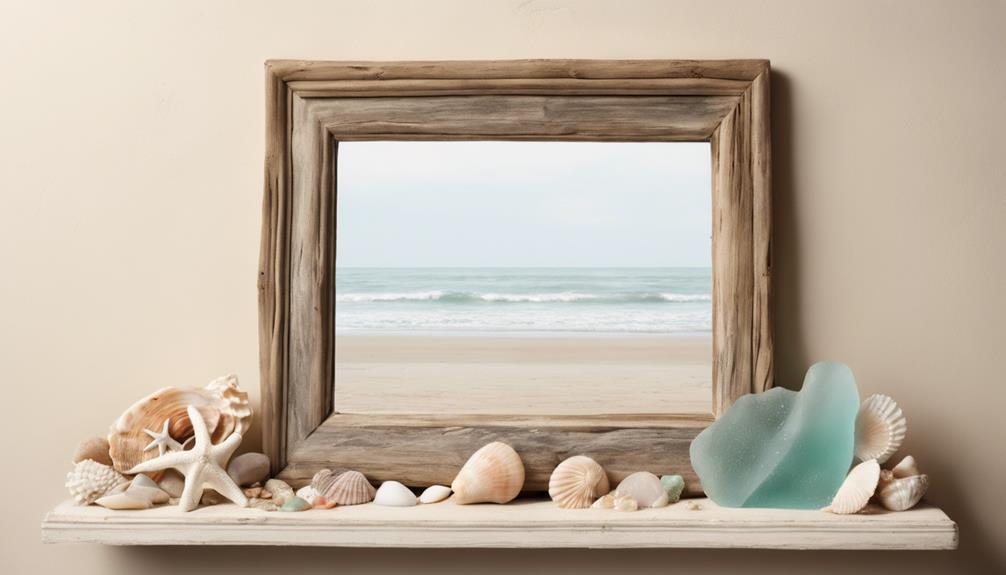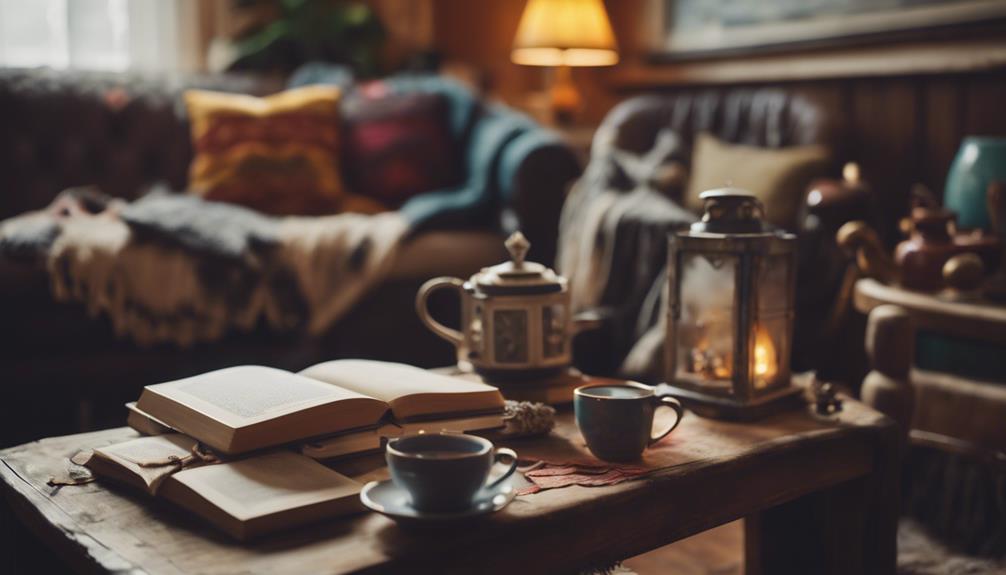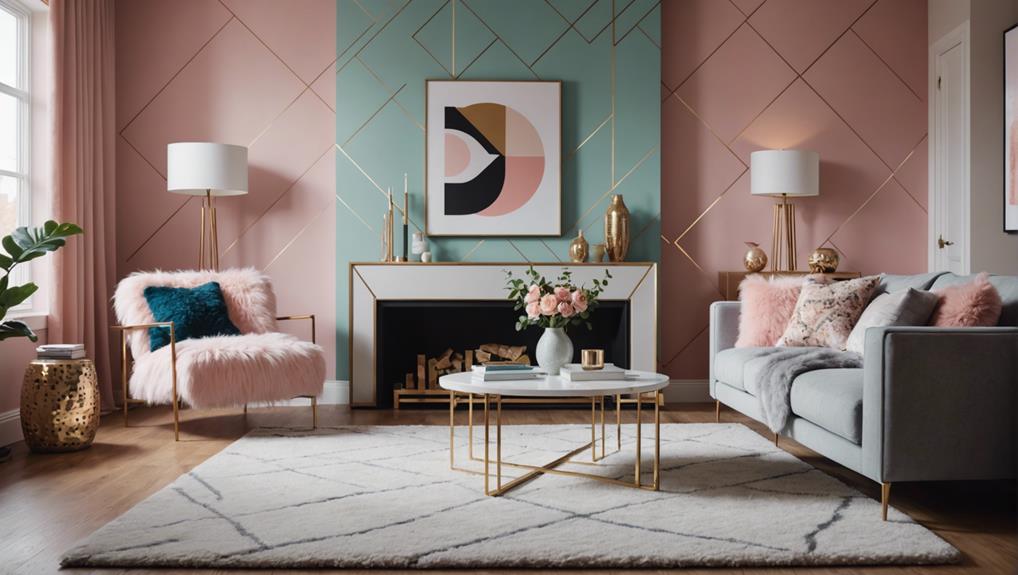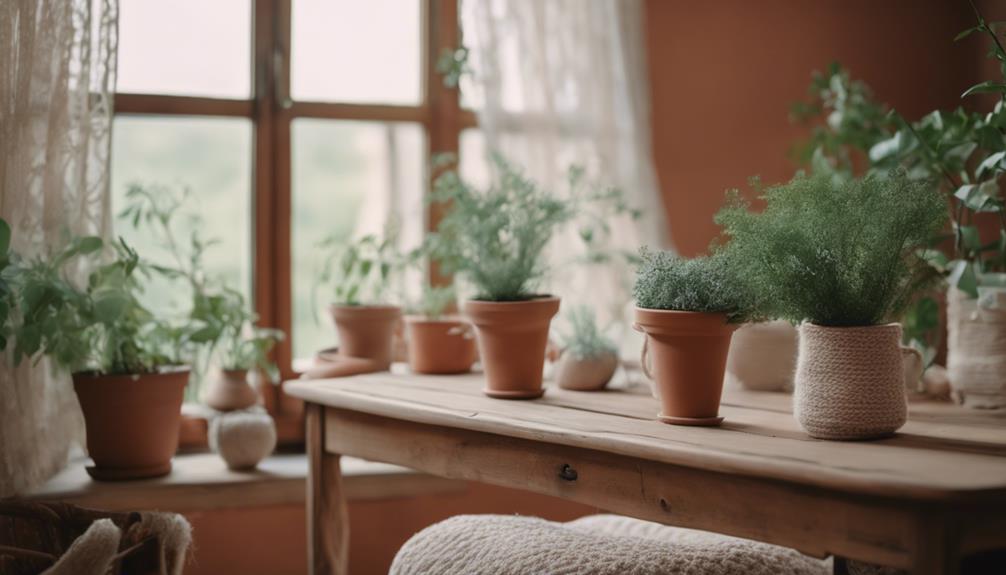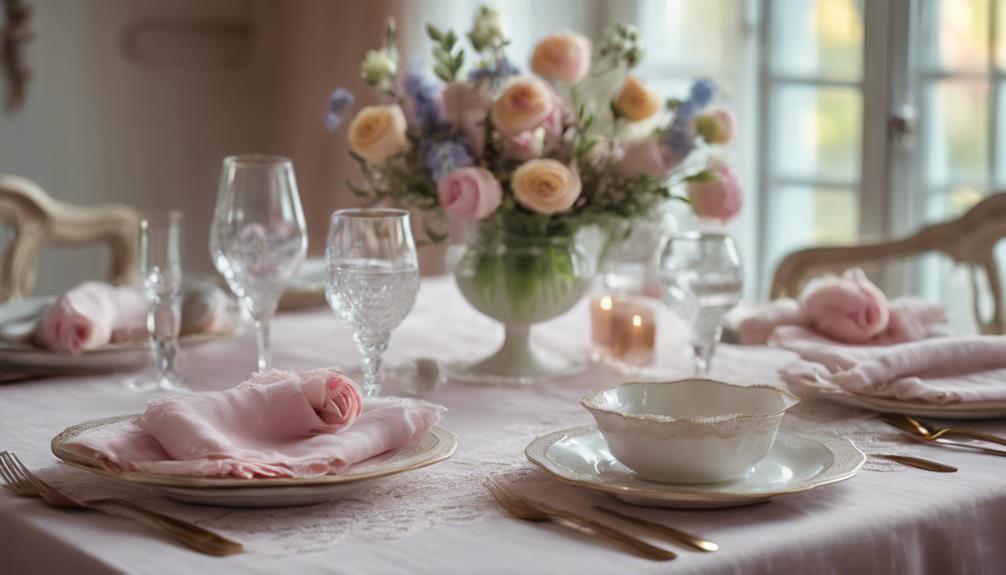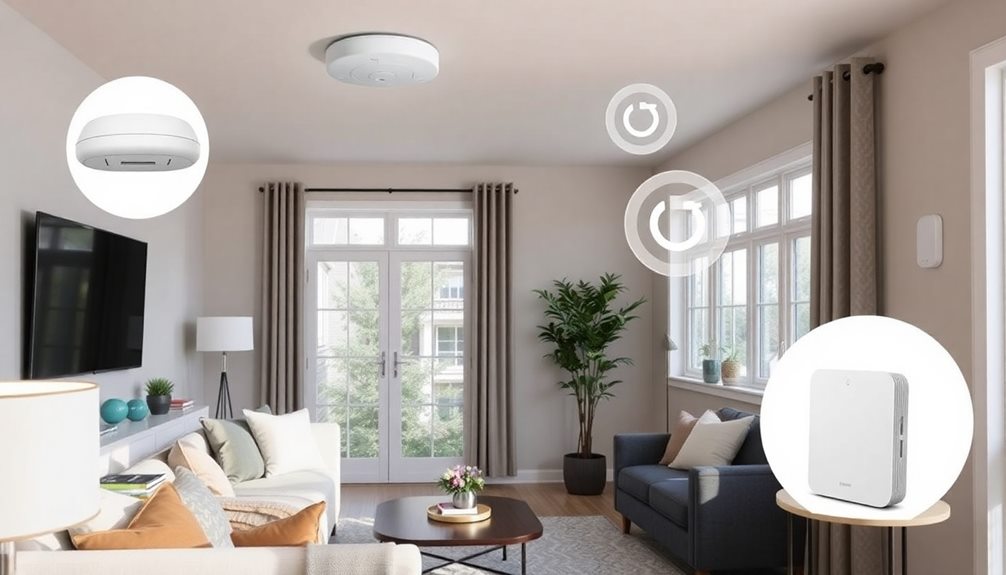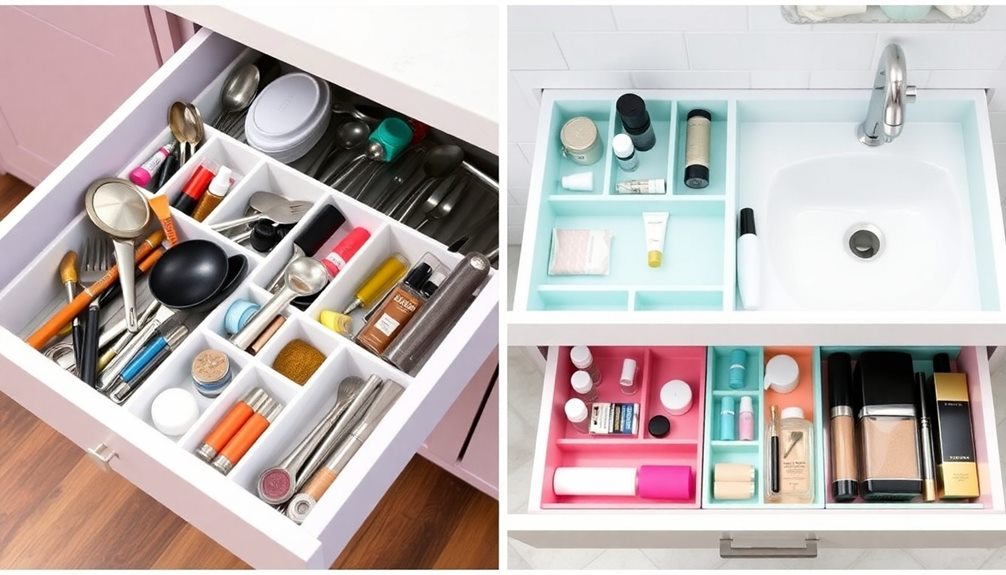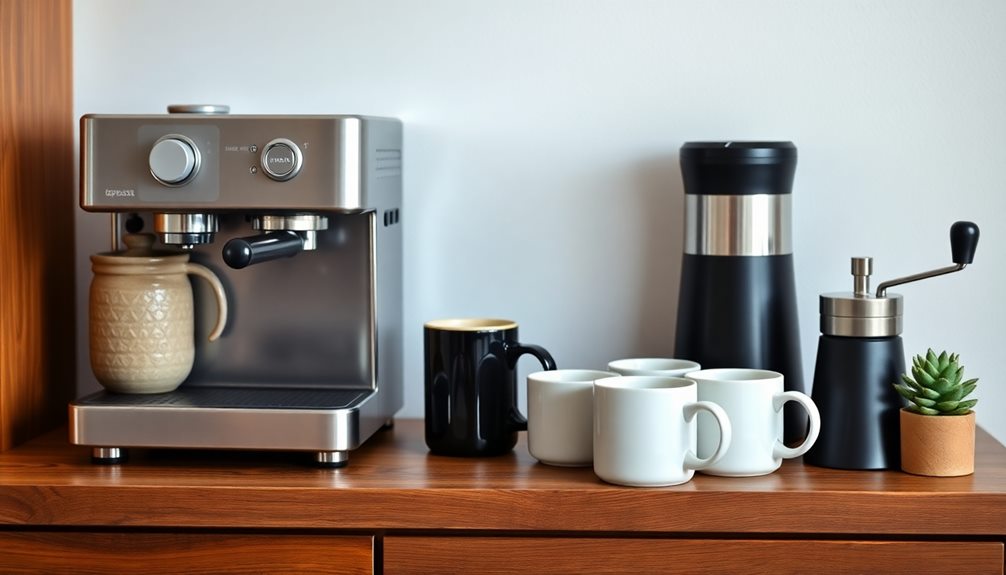You can turn your space into a coastal haven on a budget by incorporating creative and affordable decorating ideas. Start by collecting seashells, driftwood, and beach glass for DIY projects or display. Scour thrift stores for coastal-themed decor items and upcycle old items like bottles and furniture with coastal themes. Choose a soothing color palette with shades of blue, white, and pastels to create a serene atmosphere. Incorporate coastal patterns and motifs in textiles, and use throw pillows, rugs, and curtains with nautical-inspired designs. As you continue to explore budget-friendly beach decorating tips, you'll discover even more ways to create a beachy oasis without breaking the bank.
Key Takeaways
• Scour thrift stores and flea markets for coastal-themed decor items to create a beachy look on a budget.
• Upcycle old items like bottles and furniture with coastal themes to add a personal touch to your decor.
• Use a palette of soothing shades of blue, white, and pastels to create a serene coastal atmosphere.
• Incorporate coastal patterns and motifs in textiles, such as throw pillows and rugs, to add visual interest.
• Create budget-friendly beach decor by collecting and displaying seashells, driftwood, and beach glass in decorative bowls or vases.
Thrifty Coastal Finds
Collecting seashells, driftwood, and beach glass on your next beach trip is a great way to score free coastal decor that adds a personal touch to your space. These thrifty coastal finds can be used to create unique DIY projects or simply displayed as is to bring a touch of the beach into your home.
You can also scour thrift stores for coastal-themed decor items like nautical wall art, beachy pillows, and seaside-inspired accessories at a fraction of the cost of buying new. Upcycling old items like bottles, trays, and furniture with coastal themes can also create budget-friendly beach decor.
DIY Beachy Decor Projects
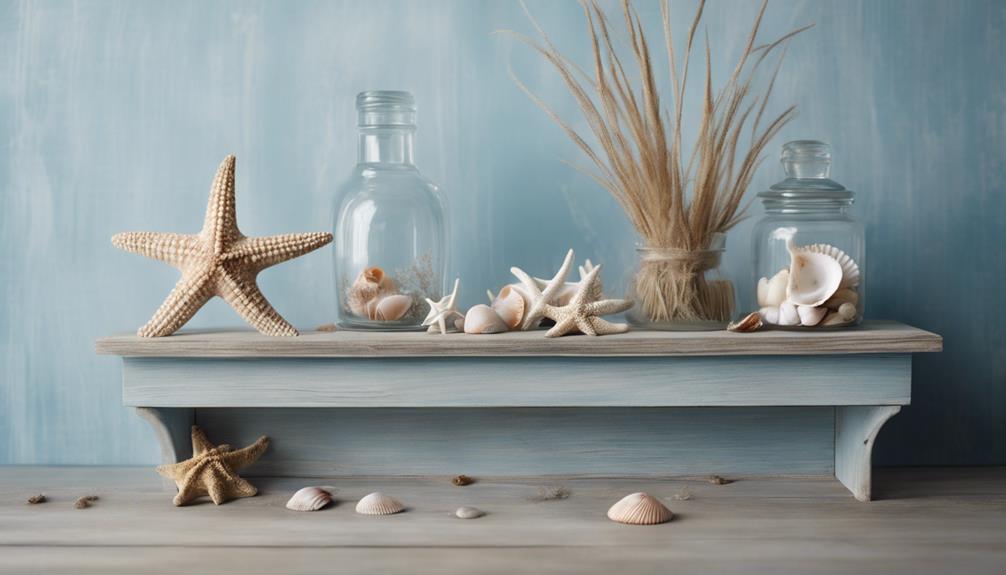
With your thrifty coastal finds in hand, it's time to get creative and turn them into unique DIY beachy decor projects that reflect your personal style.
You can transform a plain tray with chalk paint to add a coastal touch to your decor.
Upcycle bottles into coastal decor pieces using specialty spray paint and netting for a unique coastal vibe.
Here are some DIY beachy decor projects to get you started:
- Chalk Painted Trays: Add a coastal touch to your decor with a plain tray transformed using chalk paint.
- Upcycled Bottles: Turn plain bottles into coastal decor pieces using specialty spray paint and netting.
- Faux Nautical Antiques: Create faux antiques like a diving helmet for a coastal home aesthetic.
- Seashell Wreath: Craft a breezy beachy wreath using seashells and beach glass for a creative display.
These DIY projects will help you achieve a coastal decor that reflects your personal style without breaking the bank.
Repurposed Nautical Treasures
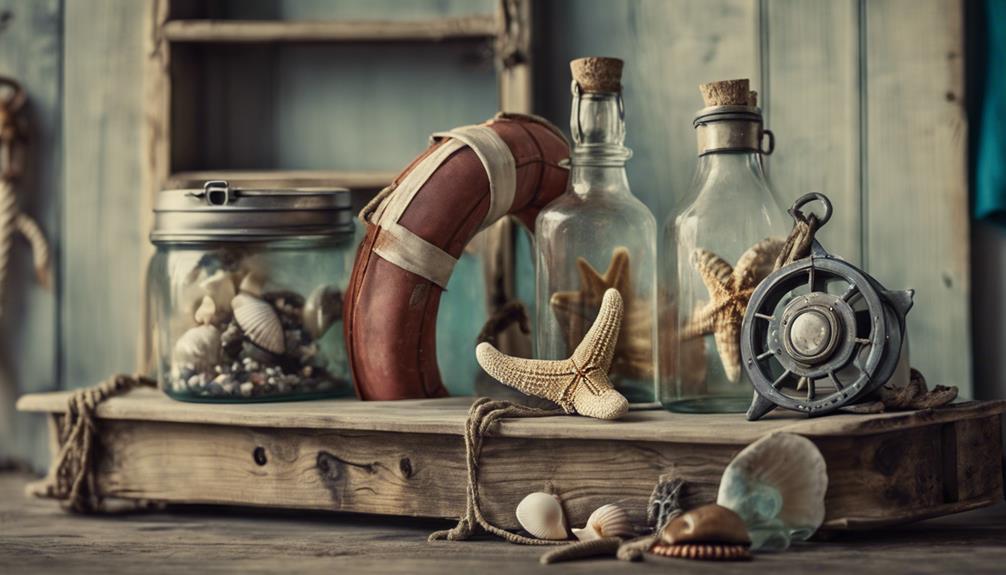
You can scour flea markets, thrift stores, and even your grandparents' attics to uncover repurposed nautical treasures that add character to your coastal-themed space. By doing so, you'll create a unique coastal living room that reflects your love for the beach.
One budget-friendly way to achieve this is by upcycling bottles into coastal decor pieces, such as transforming old bottles into beautiful centerpieces or decorative accents. You can also give an old tray a coastal makeover using chalk paint to create a stylish coastal tray for displaying beach treasures. Faux nautical antiques, like a diving helmet replica, can enhance the coastal theme of your home without breaking the bank.
Utilizing recycled bottles and nautical elements for decor is another budget-friendly way to achieve a beachy look. With a little creativity, you can create a beautiful coastal-inspired tray that adds a touch of the beach to your coffee table. By repurposing nautical treasures, you'll create a DIY coastal space that's both budget-friendly and visually appealing.
Budget-Friendly Coastal Colors

To evoke the calming essence of the coast, choose a palette that incorporates soothing shades of blue, white, beige, and soft pastels that instantly transport you to a beachy state of mind. These coastal colors will create a serene atmosphere, reminiscent of a day spent by the ocean.
Here are some budget-friendly ways to incorporate coastal colors into your decor:
- Soft Blues: Incorporate calming shades of blue, like sky blue or light navy, to evoke the feeling of a clear summer sky.
- Neutrals: Use whites, grays, and beiges as a versatile backdrop for your coastal decor, allowing for easy customization.
- Nature-Inspired Hues: Draw inspiration from the natural world, incorporating hues reminiscent of sand, sea, and sky.
- Light and Airy: Incorporate light, airy colors like aqua, seafoam green, and sandy beige to enhance your coastal theme.
Seaside-Inspired Textiles
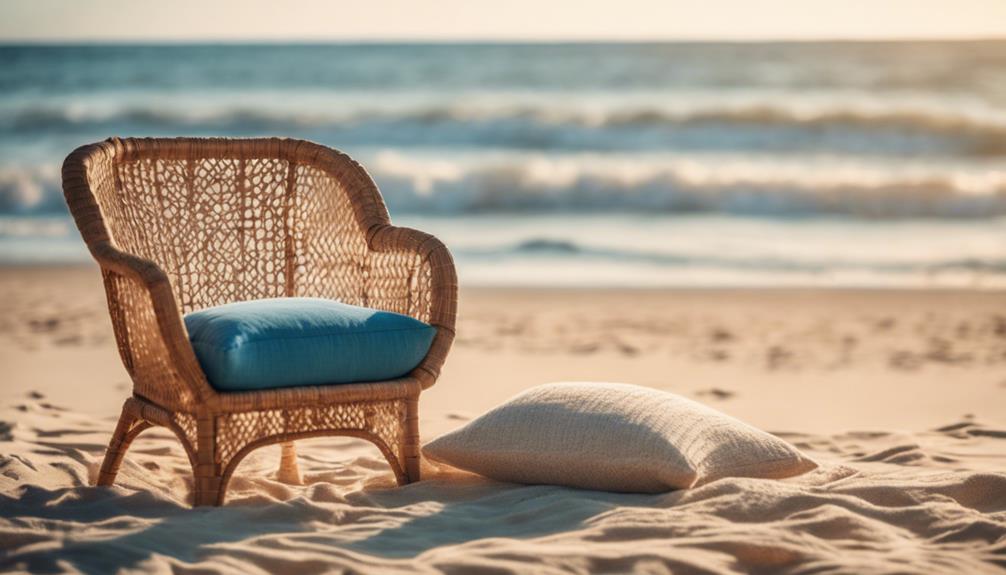
Seaside-inspired textiles, featuring coastal colors and motifs, instantly transport your space to a beachside oasis, where the soothing sounds of the ocean and the warmth of the sun on your skin evoke a sense of serenity. When it comes to beach decorating, incorporating these textiles can make all the difference in creating a coastal retreat.
| Textile Type | Coastal Patterns | Natural Textures |
|---|---|---|
| Throw Pillows | Seashell, Anchor | Cotton, Linen |
| Rugs | Wave, Stripes | Jute, Sisal |
| Curtains | Nautical-inspired | Linen, Cotton |
| Blankets | Coastal Colors | Cotton, Fleece |
Frequently Asked Questions
How to Furnish a Beach House on a Budget?
When furnishing a beach house on a budget, you'll need to get creative. Start by scouring thrift stores and online marketplaces for affordable, gently-used pieces that fit your coastal vibe. Consider refinishing or repurposing items to save money.
You can also find deals on end-of-season sales or clearance events. By thinking outside the box and getting crafty, you can create a beautiful, beachy space without breaking the bank.
How Do You Decorate in Coastal Style?
As you navigate the world of coastal decor, you're likely wondering how to infuse your space with the essence of the ocean.
To decorate in coastal style, imagine the soothing sounds of the waves and the warmth of the sun on your skin.
Envision a palette of calming blues and whites, reminiscent of sea foam and driftwood.
You'll want to incorporate natural elements, like shells and sand, to bring the outdoors in, creating a serene atmosphere that whispers 'relaxation.'
How Can I Make My House Look Beachy?
As you aim to give your house a beachy look, start by incorporating natural elements like seashells, driftwood, and sand into your decor.
You can also create your own beach-themed art, furniture, and accessories to add a personal touch.
How to Decorate for a Beach Theme?
As you begin decorating for a beach theme, start by incorporating natural elements like seashells, driftwood, and sand into your decor.
You can also create your own beach-themed art, furniture, and accessories to add a personalized touch.
Don't be afraid to think outside the box and repurpose old items to give them a beachy makeover.
Conclusion
As you've waded through these budget beach decorating tips, you've likely gathered a treasure trove of ideas to transform your space into a coastal haven.
Now, tie them together like the threads of a weathered rope, weaving a narrative that's uniquely yours.
With these thrifty finds, DIY projects, and repurposed treasures, your beach-inspired abode will shimmer like the sun on the waves, a reflection of your creativity and resourcefulness.
Vivienne – Your Content Companion Vivienne is your content companion, curating valuable tips, advice, and inspiration to guide you on your home decor journey. From insightful blog posts to informative product descriptions, she’s here to empower you with the knowledge you need to create your dream space.
